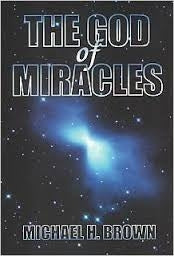The Catholic Church is alive and well, despite all the crises and an ailing Pontiff. That’s to say: this is a Church like none other–starting with the fact it now counts 1.4 billion among its number, or four times the population of the United States.
There are 900 million Protestants and Orthodox, but they’re split into literally thousands of denominations. It’s also less than the total for Muslims (1.9 billion), who divided into Sunni and Shia.
On the contrary, whether in Japan or Argentina, the Arctic or Australia, the same basic Mass is said (with some variances, among those attending certain Eastern Rite or Latin liturgies). No matter where you attend Catholic Mass, you get the identical sacraments.
Size?
Consider that Catholicism has 5,400 bishops and more than 400,000 priests, enough to entirely populate a city like Tulsa, Oklahoma, or Arlington, Texas. The priestly numbers are down, and orders of nuns have vanished, but hopefully they’ll come back and deacons are up.
Not that there aren’t issues. Complaints include dryness of homilies (a real crisis, chasing away the young). But other denominations at times suffer a similar desiccation. One Pentecostal-Full Gospel-type pastor calls it “Cerebral Christianity.”
“This tragic spiritual ailment reduces biblical spirituality to a cerebral condition that exists only in the brain of the afflicted,” says David Bryan of California, if a bit harshly. “This conveniently allows for an ‘historic faith’–which boasts of believing in miracles recorded in Scripture without ever demanding that the individual venture into the risky arena of personal experience!”
Some, he complains, act as if miracles stopped when the last of the New Testament was recorded. Is this why, for instance, Catholic numbers are impressive overall, but only thirty percent attend weekly Mass, and 48 percent don’t believe, or are not quite sure of, the True Presence in the Eucharist (the greatest miracle)?
“Most Western Christians live a double life,” says Bryan. “We say we believe in Jesus Christ, Immanuel, the God Who is with us. Yet we are governed by a worldview that excludes the Christian experience that has always been central to the faith of authentic Christians.
“This impotent theology suits us well in the West, where we are often content to acknowledge ‘experts’ in theology who are strictly theoreticians and have virtually zero experience in any practical application of the knowledge they claim to be such masters of!
“Could that possibly qualify us as ‘having religious customs and traditions, but no true demonstration of the supernatural power of God’ (2 Timothy 3:5)?”
You decide.
A question every pastor in every denomination needs to answer.
[resources: The God of Miracles]


